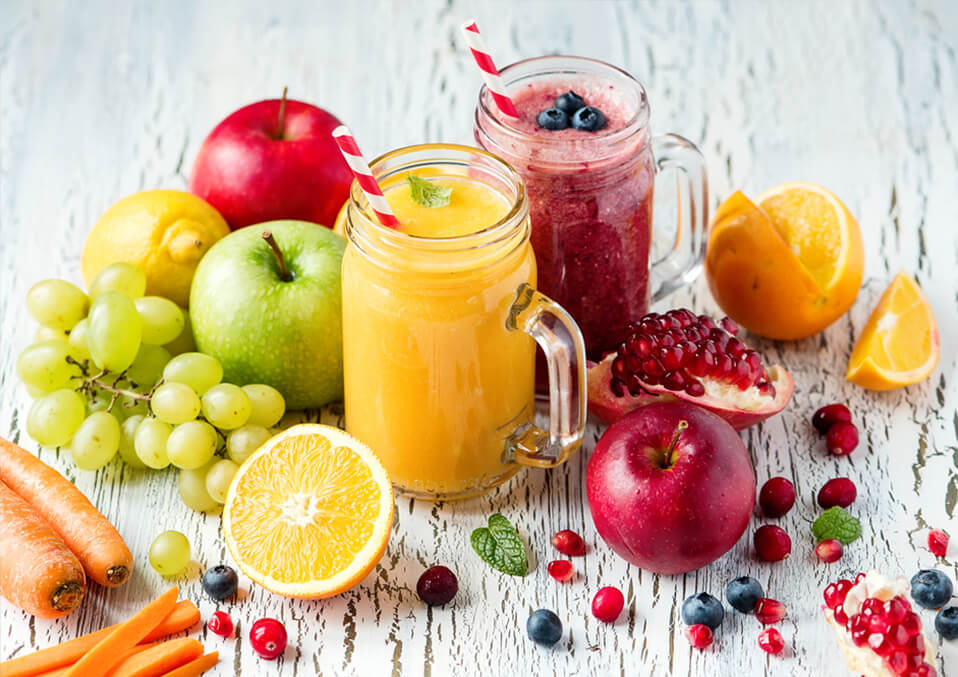Feeling hungry must be related to a reason such as too many hours fasting or making an extra effort or even taking some kind of medicines making you feel hungry. Also, you can feel hungry all the time in early pregnancy.
Many pregnant women suffer from hunger and cravings. It is acceptable to indulge in occasional cravings, but what you eat will nourish your child as well. Therefore, it is essential to have a healthy diet for you and your baby. Taking a balanced diet will also help to bring the weight of the pregnant woman to the right amount.
So to avoid the annoying feeling hungry all the time in early pregnancy we should:
Develop Healthy Habits
1.Talk To Your Doctor:
You should talk to your doctor about your healthy weight gain. A pregnant woman needs to gain and add weight for her baby, however, women with a high body mass index (BMI) should lose weight. And here is below general guidelines we suggest the following mentioned that:
If before pregnancy the BMI was less than 18.5, then it is obligatory to take 13-18 kilograms (28-40 pounds).
If before pregnancy there was a BMI of 18.5-24.9, then try to add 11-16 kilograms (25-35 pounds).
If your BMI is 25-29, you should take 7-11 kilograms (approximately 15-25 pounds).
If the BMI exceeds 30, you need to add 5-9 kilograms (about 11-20 pounds).
In case when you carrying twins, the general recommendation is 16-20 kilograms (35-45 pounds). But if you carry triplets, you need to have 23-27 kilograms (50-60 pounds).
If you have multiple pregnancies, then you should talk to your doctor about your healthy weight gain.
2.Control Your Calories:
If, rather, the pre-pregnancy BMI was normal, then during the 2nd trimester of pregnancy should be taken 1 extra 300 calories per day.
In general:
Always eat breakfast
To avoid cravings, eat small healthy snacks (yogurt, hiking mix, and fruit) between large meals keep snacks handy at home, at work, in your purse or in your car.
3.Limit Access To Unhealthy Foods:

There may be days to fancy dark chocolate-covered dill pickles, but generally speaking, do not eat junk food. Excess calories should be obtained not from junk food, but from nutrient-rich foods. Try to limit the number of potato chips, sweet biscuits, and soda in your household. Remember that everything that you eat will go to the baby.
4. Avoid Eating Emotionally:
Hormones can cause mood swings, but try not to use food as a comfortable device. Rather, if you feel that your stomach hurts you, then you can go out for a walk or play with good friends, or reach for a”happy” snack, such as a banana that contains amino acids that lead to the formation of dopamine and serotonin, which are neurotransmitters that boost mood.
Other foods that can boost and change your mood include nuts and dark chocolate.
5. Eat Slowly:
Take your time when you eat if you eat too fast, the body will not notice immensely. Also if you eat more slowly and pause every time you chew, the digestive hormones will have time to satiate the brain. Enjoy a meal, avoid eating while watching TV, and do not record the intake of meals.
Make the food smaller or smaller, and increase the portions that can be eaten.
If you eat it on a small plate, you will feel like you are eating more food.
You can eat and be talking to your baby at the same time; this action will actually make you feel happy and more comfortable.
Eating slowly also helps prevent heartburn, and get the maximum benefits of what you are eating.
6.Manage The Desires:
Listen to the signals of your body. If you want something sweet, for example, you may miss the vitamins which are contained in the fruit. Likewise, if you are craving something salty, your sodium levels may be out of balance. You should not follow all urges, but be sensitive and listen to what your body says.
Covering Your Main Food Groups

1.Include Cereals In Your Diet:
Carbohydrates are necessary to maintain a high energy level. Whole-grain foods are a healthy choice, and about 50%of your cereal intake should be taken from whole grains such as pasta, rice, and bread. Consider buying bread and cereals with the addition of vitamins, iron, fiber, minerals, and folic acid
Breakfast cereals, breakfast sandwiches, and dinner whole-grain pasta are examples of cereals for 1 day.
2. Eat Fruits And Vegetables:
It is necessary to eat a sufficient amount of fruits and vegetables, and also to consume a sufficient amount of a rich set of vitamins, minerals, and dietary fiber. Try to pick up dark green vegetables to eat such as spinach as a source of fiber, folic acid, and vitamin A. citrus fruits provide vitamin C for 1 to 5 servings of fruits and vegetables.
All this verity and carefully choosing fruits and vegetables is helping you to not feel hungry all the time in early pregnancy.
Also with salads, you can combine several food groups. Starting from leafy vegetables (romaine, spinach, kale, arugula, Chow), add the side vegetables (carrots, tomatoes, broccoli, peppers, cabbage, mushrooms, celery). Decorate with sliced tangerines and chicken breast, chickpeas, or salmon protein.
Feeling hungry, Healthy choices include fruit smoothies made with low-fat yogurt and fresh fruit. Vegetable pizza and underwater sandwiches are also a great option.
Avocados are an excellent option because they need healthy fats.
You can create a trail mix of nuts, banana chips, raisins, or dates.
Look at the amount of juice you consume. Due to its high sugar content, it can be extra pounds.
Read Also:
3. Take Enough Protein:
For the development of the baby, try to include a lot of protein in the diet. Meat, fish, beans, eggs, and chicken are important sources of protein. Fish, especially omega-3 fatty acids, are essential for the growth of the baby’s brain. Aim for 5.5-7 oz. 1 protein per day.
Start your day with protein and fiber. Whole grain toast with scrambled egg or peanut butter with vegetables prepares the atmosphere of the day and brings a sense of satiety and satisfaction.
Try fresh vegetables, Sal fillets, rice and black beans, or edamame omelets.
Not eating the liver Fish with a high content of mercury can be dangerous. Avoid swordfish, made, sharks, and mackerel.
4. Have Good Fats Into Your Diet:
Fats are necessary as part of the prenatal diet. Try to stick to healthy fats and reduce the intake of saturated and hydrogenated fats. These fats are found in processed foods such as lean meats, butter, crackers, and potato chips. Instead, notice the following:
Monounsaturated fats contained in nuts, olives, avocados, almonds, and peanut butter. Do not forget that anything you eat will have inflection on your baby whatever bad or good thing.
Polyunsaturated fats contained in sunflower, flax and soybean oil
5. Keep Hydrated:

Feeling hungry during pregnancy, it is better to have from two to ten glasses of hydration. All liquids are included in this total, but alcohol during pregnancy should be avoided. Try to limit the caffeine level to 1 Day 1 cup of coffee or 2 cups of tea, because when you have more, then you will feel hungry and thirsty faster.
All the time hold a bottle of water with you.
If you don’t like water too much, consider infusing water with cucumber, lemon, or lime to add a nutritious flavor.
So, after all this we are a hundred percent sure that you and your baby’s health status is related to what you eat, what kind of diet that you follow and how much you are committed. In this way, you can also minimize feeling hungry all the time in early pregnancy.
Read Also:
- A Perfect Food Guide for Pregnant Ladies.
- Parents Spanking Consequences & Alternatives.
- Can Pregnant Women Drink Tea? Is It Safe?


